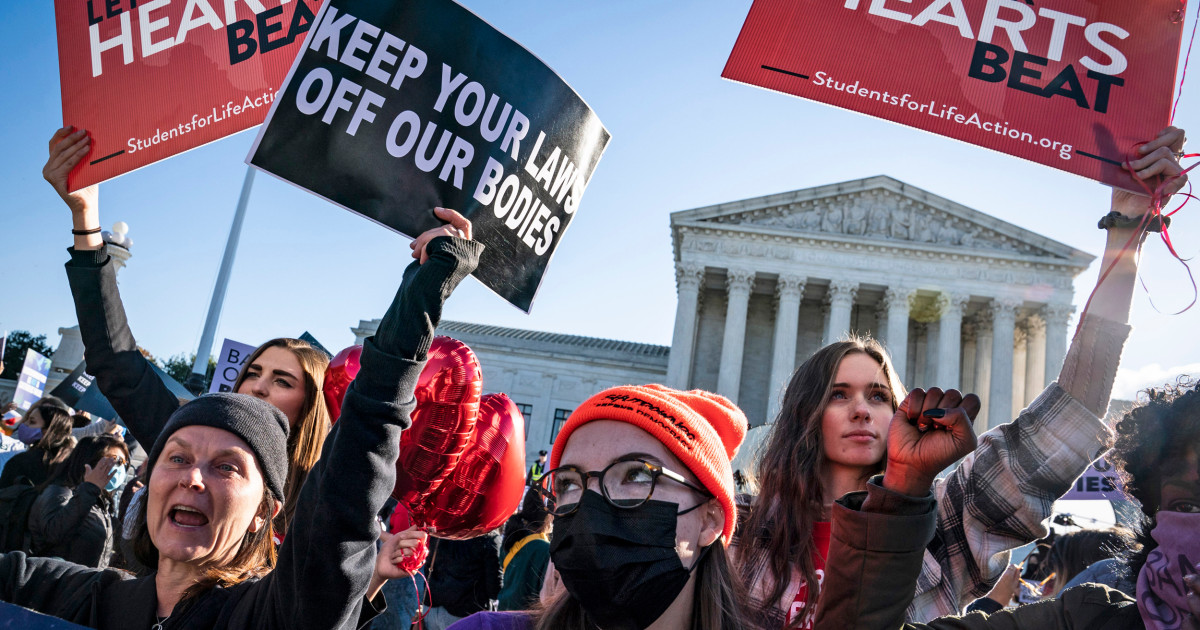
WASHINGTON — The Supreme Court ruled Friday that a lawsuit by abortion providers challenging Texas’ near-total ban on the procedure can move forward, a partial victory for opponents of the law.
The measure, the most restrictive in the nation, prohibits abortions in the state after about the sixth week of pregnancy, before many women know they are pregnant.
Texas had sought to make the law nearly impossible to attack in federal court. Because past Supreme Court rulings have said states cannot prohibit abortion before the age of fetal viability, at around 24 weeks, Texas officials didn’t seek to enforce the ban themselves. Instead, the law delegates enforcement to anyone who chooses to sue a doctor performing an abortion or people aiding in the procedure.
Those who sue can collect at least $10,000, potentially subjecting abortion providers to the prospect of repeated, and ruinous, lawsuits.
Texas had argued that opponents of the ban had no legal authority to sue the state because the law, known as S.B. 8, doesn’t give Texas officials any role in enforcing the restriction.
“Federal courts don’t enjoin laws, they enjoin officials who enforce the laws,” the state’s solicitor general said.
The structure of the law meant abortion providers wouldn’t be able to sue anyone in advance, but rather would have to wait until they themselves faced civil litigation from private citizens for violating the prohibition, the state argued.
But abortion providers in the state sought to sue Texas judges and court clerks, describing them as “unquestionably connected to the enforcement of this new law; without them, the civil suits targeting the right to abortion could not be litigated, or even commenced.”
The justices did not decide whether the law violates the Constitution, an issue that was not presented in the case. But the decision clears the way for the constitutionality question to be litigated in the state, and because the law clearly violates existing Supreme Court abortion precedents, those challenges appear likely to prevail.
The justices said a separate lawsuit by the Biden Department of Justice seeking to challenge the law in federal court could not move forward, however.
In another case argued Dec. 1, the court is considering whether to overturn Roe v. Wade, which could allow states to decide whether abortion will be legal within their borders. That case involves a challenge to a Mississippi law, now on hold, that would prohibit nearly all abortions after 15 weeks of pregnancy.
The Supreme Court took up the Texas cases after twice refusing to block the enforcement of the law while the pair of challenges worked their way through the lower courts. As a result, the number of abortions in the state have dropped dramatically, and some clinics have stopped providing abortion services altogether, forcing women seeking the procedure to travel out of state.
Source: | This article originally belongs to Nbcnews.com









